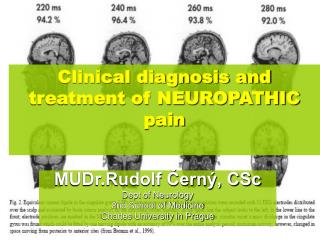Peripheral neuropathy is a concept that encompasses a wide range of disorders affecting the peripheral nervous system, which comprises all the nerves beyond the cerebrum and spine. It can appear in different ways, from prickling and numbness to intense pain and loss of strength. For many who deal with neuropathy, the condition is more than a physical ailment but a combination of emotional and mental health challenges that can significantly alter their overall well-being.
Understanding neuropathy is essential, as it is not a singular condition but rather a collection of diverse disorders resulting from different causes. These can range from diabetic conditions and infectious diseases to autoimmunity and exposure to toxins. Each form of neuropathy presents its unique symptoms and requires a customized approach to treatment and care. As we explore further into the details of neuropathy, it becomes apparent that addressing the discomfort is just one piece of a much larger puzzle that entails recognizing the underlying issues and providing comprehensive care.
Comprehending Neuropathy
Neuropathy denotes a condition that occurs due to injury to the peripheral nerves, which are tasked with transmitting impulses between the CNS and the rest of the body. This disruption can cause a variety of indications impacting sensation, motor function, and overall bodily function. Neuropathy can be categorized into various types based on the types of nerves affected, including afferent, efferent, and involuntary nerves. Understanding these differences is essential in identifying and treating this complicated disorder.
The causes of neuropathy are varied and can include diabetes, pathogens, physical damage, and interaction with toxins. Among these, neuropathy due to diabetes is one of the most frequent forms, arising as a consequence of inadequately controlled blood sugar levels. Other conditions, such as autoimmunological disorders, can also cause nerve damage. Identifying the underlying cause is critical, as it directs the therapeutic strategy and helps address any associated health concerns.
Manifestations of neuropathy can fluctuate between slight to debilitating. Patients may undergo tingling, numbness, or acute pain in the affected areas, as well as weakness of muscles and motor coordination difficulties. These signs can significantly influence daily life, making it crucial for patients to obtain medical advice. Early action and appropriate management can help lessen pain and improve quality of life for individuals suffering from neuropathy.
Symptoms and Identification
Individuals with neuropathy often face a variety of symptoms that can fluctuate greatly depending on the kind of nerves affected. Common symptoms include insensitivity, tingling, or a sensational sensation, primarily in the fingers and feet. Individuals may also experience challenges with balance, muscle weakness, and heightened reactivity to touch. The severity and mix of these symptoms can considerably impact daily activities and quality of life.

Identifying neuropathy typically involves a comprehensive evaluation by a healthcare professional. The process usually begins with a comprehensive medical history and physical examination, where the doctor assesses symptoms and any underlying conditions. Diagnostic tests such as nerve function tests, electromyography, and blood tests may be conducted to assess the extent of nerve damage and discover the underlying cause.
Identifying the type of neuropathy is crucial, as it informs the treatment approach. Neuropathy can be categorized into several categories, such as central, autonomic, and diabetic neuropathy, each with unique features and management strategies. Precise diagnosis is essential for successful treatment, allowing patients to consider various therapeutic options tailored to their specific needs.
Management Options and Management
Managing neuropathy requires a thorough approach that tackles both the signs and the underlying issues. For various individuals, medications such as anticonvulsants or mood stabilizers can drastically reduce pain and improve quality of life. These drugs work by altering the way the nervous system handles pain messages. Over- neuropathy specialist near me can also be beneficial for less severe cases, while more intense symptoms may require prescription options.
In conjunction to medication, physical therapy plays a pivotal role in treating neuropathy. Specialized exercises can strengthen muscles and improve coordination, which may help to prevent falls and injuries associated with the condition. Techniques such as neuromuscular stimulation or manual therapy can provide further relief by enhancing circulation and reducing discomfort. Patients are often urged to engage in regular, gentle physical activity to maintain overall health and mobility.
Complementary therapies also offer encouraging avenues for symptom management. Practices such as acupuncture, mindfulness meditation, and yoga have shown helpful effects for some individuals with neuropathy, helping to diminish pain and improve emotional well-being. Alongside lifestyle modifications, such as maintaining a balanced diet and controlling blood sugar levels in diabetic patients, these approaches create a comprehensive management plan that addresses the complexities of neuropathy efficiently.
